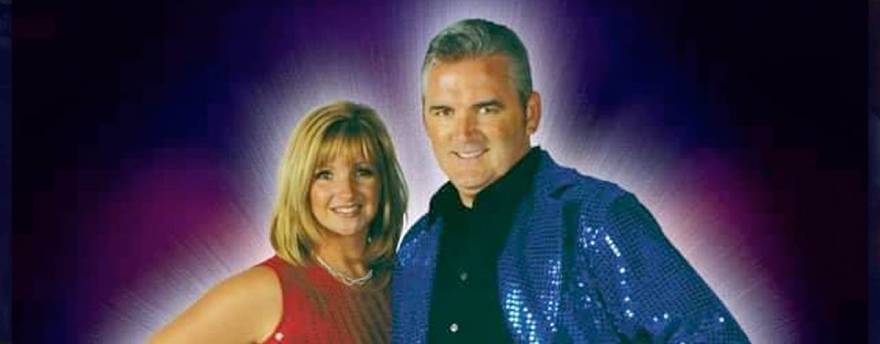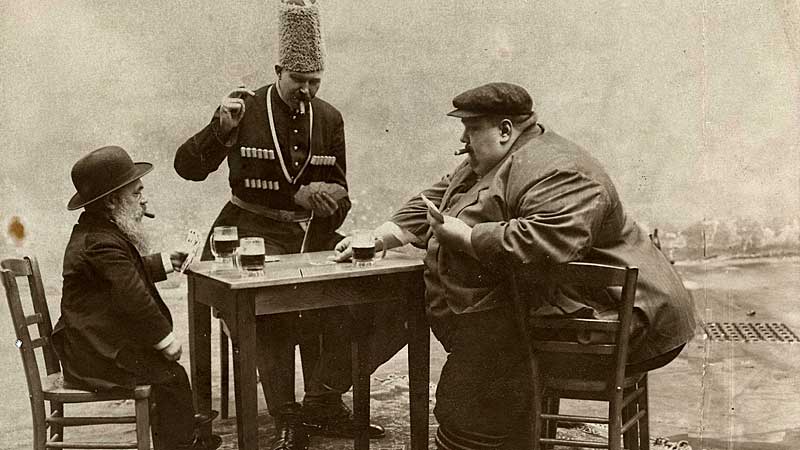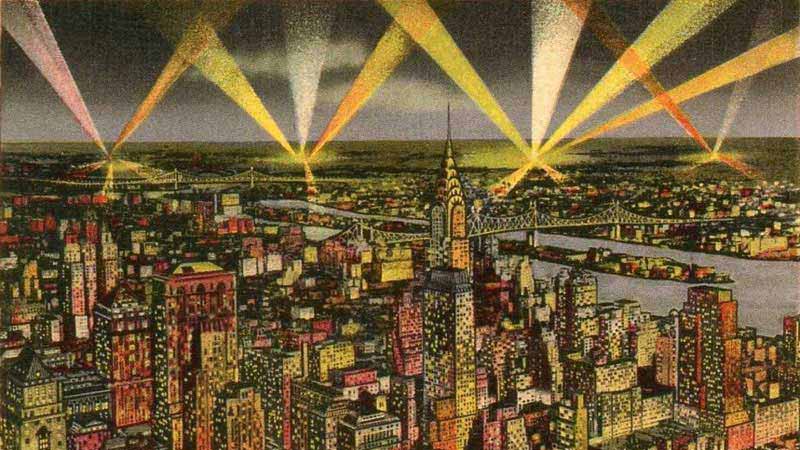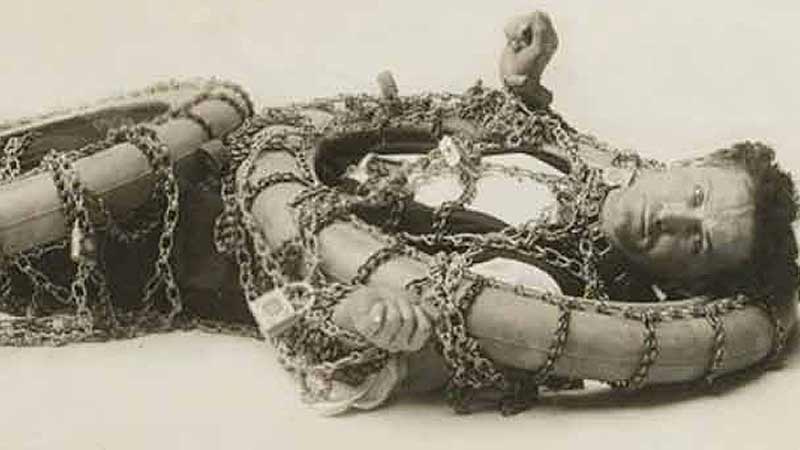Kevin Heller's "How to Conquer the Fair & Festival Market" Podcast Interview
by Christian Painter and Roland Sarlot

What We'll Explore
Kevin Heller shares secrets of the summer fairs and festivals market including how you get hired, your #1 step, how much you can charge, marketing to this audience, and navigating the minefield.
Who is Kevin Heller?
Kevin Heller is a monster in the fair and festival market where he regularly performs up to 150 shows throughout the Midwest in a summer season. Kevin wrote the book on the industry, titled "The Outdoor Dilemma" as well as the authoritative and well-received DVD lecture on back of the room sales.
Running Time:
The following interview has been edited and condensed for clarity.
What you can do
You are welcome to share up to 500 words of the below transcript in a non-commercial purpose provided you credit and link back to our site like this: "The Magic Oracle Business Podcast".
The Interview
Christian Painter: On this episode of The Magic Business podcast...
Kevin Heller: But the real secret for me to making a lot of money in this business, again, I'm not bragging, this is absolutely realistic. I average about $30,000 to $35,000 a month performing in the fair and festival market.
Christian Painter: Welcome to the Magic Business Podcast, where we share insightful and delightful inner secrets about the business of magic. This is where magic professionals present their real-life experiences and some of their most-guarded secrets to help further your career in the magical arts. I'm your host, Christian Painter, in partnership with the MagicOracle.Club, where you can hear all of our Magic Business Podcasts.
Kevin Heller is based out of Indiana. He is a monster in the fair and festival market where he regularly performs up to 150 shows throughout the Midwest. For three years, Kevin had a standing show for the public in Shipshewana, a small tourist town in Indiana. He has written a book on working in the fair and festival industry, called "The Outdoor Dilemma." He also has a well-received DVD lecture on back of the room sales. As busy as all this sounds, he is actually only a part-time professional magician. His other job is he's a national sales and marketing executive in the print industry. I am super happy to have him. This guy's full of knowledge. Welcome to the show, Kevin.
Kevin Heller: Hey, thanks for having me.
Christian Painter: You have a ton of experience in this. And a lot of people come to you about the fair and festival market, getting advice, and I've been one of them. So, my question to you is what makes the fair and festival market so much different than other markets?
Kevin Heller: Well, I think it's safe to say that most working magicians, or entertainers for that matter, have worked outdoors and it's always fun for me, If I go to a random fair or something, even if I'm not performing there, I can always tell the performers who have never worked outdoors, because it's 90 degrees and those are the guys wearing their tuxedo or their suit. And so, they wouldn't be considered fair and festival or outdoor performers, they're considered a guy who took a gig and didn't know what to wear when he got there. So, I think the biggest difference between actually being a performer who takes an occasional outdoor show...I mean, even a birthday party magician works in the backyard once in a while, you know, but the biggest difference is understanding the market and understanding the difference between your general show, what you've always done, versus literally what you need to do to be successful as an outdoor performer.
Christian Painter: So, working outdoors, what's one of the first problems I'm gonna run into?
Kevin Heller: Weather. You're gonna run into the weather. I mean, you can… and, you know, I've performed all over the country and pulled a big old trailer all over the country, but I predominantly, in the last 10 to 15 years, have really tried to stay focused on the Midwest. For me, I felt like the Midwest was just a groundswell of opportunity to do lots of festivals, lots of outdoor events. You literally are going to experience every type of weather you can possibly imagine. And believe it or not, sometimes you can get pretty close to all four seasons in one day.
Christian Painter: So, I'm gonna guess even your tricks now have to be, whatever you think of as tricks that you're bringing to the show, you have to rethink these tricks, I'm gonna guess?
Kevin Heller: That's right. That's right. What I got used to doing, I used to be very meticulous about making sure I had, like, five different shows, and I would have them all cased up, or sectioned off, or I'd have them at least on my phone in my notes. This is show number one, show number two, yada, yada, yada. But at the same time, I always had a cache of literally every piece of magic I could do. Because every so often, you show up at a fairground, and the gods are shining on you and they actually put you in a nice building, or they put you inside of a tent. Well, all of a sudden, that eliminates the wind and it eliminates the rain. I can tell you in the middle of the summer, it does not eliminate the humidity. However, it does allow you to do some things. For example, I wouldn't recommend doing a silk act outdoors. But say you've got a good silk act and you would love to do it. Ordinarily, if they put you on a frickin' hay wagon on the parkway, you're not doing that silk act. Your silks are gonna be blowing all over the place and you're gonna have all kinds of issues. They stick you in a building or in a tent, bust it out. It's something different that people aren't used to seeing at an outdoor show.
So, I think you really have to be versatile. If you're building homemade props out of wood, and you're not sealing them correctly, or your builder's not sealing them correctly, depending on the time of year, you're gonna have swelling, you're gonna have shrinking, you're gonna have hinges that don't work correctly, you're gonna slam the door on say, a modern art illusion, and the door is gonna bang up against the side, because it's not gonna fit right. And then it kind of breaks your momentum as a performer, standing there messing around with the door, trying to get it to pop shut. And by the way, while you're performing that routine, the only thing you can think of, instead of doing a great act, is, "Oh, my god, I hope I can get that door open when I'm done with this." So, the weather will just wreak havoc on your show, if you're not careful.
Christian Painter: Now, where do you even get hired for a fair and festival show?
Kevin Heller: Well, I do a handful of things. You know, when you introduce me, you'd mentioned that I was a sales executive. And I've been in the print and marketing industry fortunately, my entire life. It's all I've ever done. So, I personally sell to massive corporations. I literally have clients, I'm a national person but I have clients all over the world, so what I decided to do years ago was kind of dial that whole process in, as it related to my product that I was selling to the outdoor market. So, all of those things that I do every day to generate millions… I mean, and I'm not patting myself on the back, I don't personally make millions, but I sell millions of dollars to these big corporations. I've essentially taken that process, and I've applied it to the product I'm selling. So, if I go and present to a fair and festival board, I've got my presentation hat on. I'm dressed appropriately. If I'm on the phone, I'm having a conversation based on what I know about that client. And so, for me, it's a combination of a handful of things. You gotta get the leads. The best place to get the leads is nearly, and I say nearly because surprisingly, not all, but nearly every state in the nation has one or two annual fair and festival conventions.
And this is where fair managers or people who run fair boards come to learn how to bring in the best rides, where to get the best insurance, what's a good process for parking, all of these things. So, I go to those. I set up a booth, just like I'm selling a product, just like a home and garden show, whatever you wanna call it. I set up a booth. And that booth needs to be good. But fortunately for me over the years, I've become very well-known in the business, so my booth looks today completely different than it did 20 years ago because people in the industry actually know me now. So it's a little bit different angle that I have to take. Right now, I'm doing client maintenance versus lead generation, which, I still always do lead generation but client maintenance and rehiring and rebooking is really my core competency.
I also do some mail, direct mail marketing. I don't think there's ever a substitute for that. However, I will caution you. I know people, there's even a guy who wrote a book about fairs and festivals a few years ago who literally knows nothing about fair and festivals, and it's just something to put out there. And his whole marketing section in the book was talking about direct mail, direct mail. Well, let me tell you something, Bubba Joe farmer on the 4-H fair board, he gets your direct mail and it goes straight in the trash, along with 20 other pieces of direct mail from people trying to get hired. So, the problem there is you're not doing anything different than what anybody else is doing. So, if you wanna use direct mail, make it an interactive piece with a massive call to action but when they get that, and they're sorting it, they go, "Oh. Oh, here's a piece from Kevin. Well, I know Kevin. I talked to him at the fair convention." All of a sudden, there's some uniqueness there and it's different and they'll set that aside.
Christian Painter: Okay, so I need to go to these fair boards. That's my number one step.
Kevin Heller: Well, your number one step is to get in contact with the fair boards. And the way to do that is to join the associations.
Christian Painter: So this isn't something I'm gonna just start tomorrow and start booking in the next couple weeks?
Kevin Heller: No. No. It's like any good business. It takes time.
Christian Painter: Okay. Now, that being said, can I make money in this? I mean, how much money can be made in a fair and festival? Because I know there's a wide berth of fees. Yes?
Kevin Heller: Yeah. It depends on what kind of show you have. If you're a mime, for example, you're gonna come in, you're probably not gonna have a lot of props. They're gonna have you walking the parkway, probably you're not gonna have an actual show. You're just gonna be walking around. You know, to be quite honest with you, a guy like that's gonna get around 500 bucks a day. So, I have seen over the years, those guys who really kick it up and go from being a mime to… I don't know if you've ever seen these living statue guys?
Christian Painter: Yeah.
Kevin Heller: Some of them are very good, very impressive. I know one personal friend of mine from over in the Ohio area, he gets $1,500 a day, period. It doesn't matter how many days you're booking, he's getting $1,500. But he draws huge crowds, and people take pictures of him and, you know, it's a little different. It's definitely something way above being a mine. So, you can go from $500 to $1,500.
I have a big show called "Midway of Magic," lots of illusions. I hauled around a huge toy hauler. I've had three of them for years. And for me, the draw is when I start setting illusions out on stage, it draws in a crowd. And I talk to the people about this when I'm selling. But the real secret for me to making a lot of money in this business, and I'm just gonna throw a number out. Again, I'm not bragging. This is absolutely realistic. My friends, and people who know me know this is true, but through the summer, I average about $30,000 to $35,000 a month performing in the fair and festival market. And that's about a four to five month window, in the Midwest. Otherwise, you start running into smaller events and things that can't pay you that kind of money. And that all comes with a combination of things, including back of the room sales.
Christian Painter: Well, all right, that's great. I don't wanna get sidetracked, because I also know you're a master of back of the room sales. But I wanna be clear. So, in this, like, that month period where you're making 30 grand, how many fairs and festivals are you doing within that time frame?
Kevin Heller: Oh, my gosh. It depends on the size of the fair. I could go in, say August, for example, when a lot of state fairs in the Midwest happen. I could get a state fair call me and say, "Hey, we want you for the whole 18 days." Well, naturally, I'm gonna give them a considerable discount but I also need to make sure that if I'm gonna book… and most magicians would be like, "Oh, my god, I just booked 18 days." The way that I think is, "Oh, man, somebody's asking me for 18 days. A great opportunity. However, not only how much can I make, but how much can this potentially cost me?" Because if I'm gonna work 18 days, that’s almost a three-week gig, I've only got maybe 10 days left in the month to book some other shows. So, it's hard to believe, but an 18-day gig, a full state fair, can actually cost you money if you don't play it right. However, in July, for example, when, say, I work a lot of 4-H fairs, I grew up farming, I know that market very well, I was in 4-H, oh my gosh, it's nothing for me to do and hit 10 fairs.
Christian Painter: Okay.
Kevin Heller: Yeah, I mean, and literally leaving one and setting up in the middle of the night at the other, because during the day, we're not allowed to drive our truck onto the fair grounds.
Christian Painter: And so, give me this, too. Give me.… so if I decided I got interested in this, because you've given me a good stepping stone to kind of get into that. How long do you think it would take me to go from zero to booking a whole month like you just talked about at $30,000? How long? How many years will it take me before I hit that?
Kevin Heller: You know, somebody who really stays the course can do it in about five years. However, I've actually helped some people over the years get into the market because they don't do anything in the summer except for maybe birthday parties. And I usually, you know, if you're a birthday party magician, for example, you've gotta show that really appeals to kids and families. And so, I'm like, "Okay, amp up your show. Let's make it bigger, or at least appear bigger, and let's go after the kids' days at these fairs." And I helped a guy in the Midwest, another guy. I'm not gonna throw out any names here, but I worked with him, and the very first year, he was booking $1,200 a day at kids' events. Now, a lot of people balked. A lot of fairs will go, "Aww, we're not gonna pay you that for kids' day." And me, being a salesman, I'm like, "I just don't understand how you can place less value on kids' day than any other day because kids can't come to the fair without their parents, and kids' day is a bigger day than most days."
So, look, the key is you have to understand the fair industry. Forget about magic. Forget about your stupid card tricks. You shouldn't be doing card tricks at a fair anyway, but forget about all that stuff, and understand the business of the outdoor market. They wanna know how are you gonna draw people. How are you gonna get people into our fairgrounds so we can charge for parking? How are you gonna get people through our gate? How are you gonna get us people, so that they buy more food and lemon shake-ups because we take 30% of that?" For me, understanding that market has put me in a situation where I can go and have a conversation with a fair board, and they're super impressed. As a matter of fact, Christian, I believe that you sat and watched me negotiate with one of the biggest fairs in the Midwest one night in a hotel room. And we didn't talk about my show. We didn't about the show! I talked about, "You got a parking space for my trailer?" And he's like, "Oh, you got a trailer?" I'm like, "Yeah, I got a huge trailer."
So, his perception is I need to put something big on this stage. And honest to God, they don't care if it's a magic show. It could be guys out there dribbling basketballs. They just don't care. And if you wanna brag to them about how great your show is, they are literally not going to book you. What are you going to do for them?
Christian Painter: Right. And I would say that that time I sat and watched you in action, and I think this is important for our listeners to hear, is, it was no longer... So, once they had decided, "All right, Kevin, we know who you are. You're good. We need you," there was never any talk, which I think most magicians do about how great their show is. And what you showed me in sitting with those guys is once they get it, you're good, you're arguing about, not arguing, but you're negotiating a whole lot of other things. And you were talking about where you're being placed at the fair, how many days. What's gonna...? And it was the knowledge that you had of the fair market that was, you were able to negotiate a very nice fee for that one. But you're not gonna have that in the beginning. But you're right, I think you have to start learning the fair market, right, you have to understand how it works, and why it works the way it does.
Kevin Heller: Well, if you took a new job as a air conditioning salesman tomorrow, and you've never sold an air conditioner, aren't you gonna have to go through some training to understand that industry? And, no matter how good of a salesman you are, or no matter how great you are with customer service, if you don't understand air conditioners, you're not gonna sell them. And if you don't understand how an air conditioner appeals to people, you're not going to sell them. So, I've said this a million times, but literally no one listens. Forget about the magic. Forget about your show. If you're gonna go out and do this, of course that stuff is good. Make sure it's good. Make sure it's appealing. You've gotta get focused on the business, and the business of the outdoor market. I mean, you have not lived until you've broken a trailer hitch at two o'clock in the morning in a field somewhere and you can't get any help.
Christian Painter: So, and you know what that does. That leads us into this question I'm gonna ask you. What, as I know, many people have approached you about working in the fair and festival market. What I wanna ask you is what's the one question they never ask you but they should be asking you?
Kevin Heller: Well, you know, over the years, I've gotten a ton of different questions, all the way from "What kind of shirt should I wear?" "What kind of underwear should I wear?" And believe it or not, I actually have an answer for all those things. But the question that I don't get, that disappoints me the most is...and I know this sounds a little odd, but, "What don't I know?" Because it blows my mind when someone says, "Well, what if I do this? What if I do this? What if I do this?" And I'll give them the advice. And then all of a sudden, they think they know it all. You know, instead of saying, "What should I look out for? What don't I know?" You know, when I'm on a phone with a client... We were talking before we set this up. I had a Zoom meeting yesterday with one of my clients in Atlanta. And at the end of that call, I learned this forever ago, at the end of the call, even though we were talking about one thing specifically, I said, "Well, hey, I really appreciate you guys coming on a call with me. I think we figured this out. Is there anything else that I can do for you while I've got you on the line?" And I think my clients remember me for that.
And it blows me away if somebody goes, "Well, how much does it cost to set up a booth at the fair and festival market?" And I'm like, "Which one you going to?" And they'll say, "I'm going to Indiana." I'm like, "It's gonna cost you 400 bucks," or whatever. And they're like, "Okay, thanks." And I'm like, "Okay, that's a person who thinks, 'All I have to do is go set up that booth.'" And you know, firsthand, because you and I met at a fair convention years ago, you could set up a really cool booth, and totally get skunked if you don't know what to do after that.
Christian Painter: Kevin, you have been fantastic. I think if you didn't know anything about it, at least now you have an idea that you might be walking into a minefield here.
Kevin Heller: I don't wanna scare anybody away. It is a minefield, but it's not, you know, you can navigate it. But I would say when you talk to people, and there are some great people in this industry you can talk to. Not just me, but some great people, and you have to listen to them, because they will tell you how to navigate that minefield.
Christian Painter: Well, I think you've done a fantastic job of helping us. I wanna thank you so much for being on the show, Kevin.
Kevin Heller: All right, man, I appreciate you having me. Good luck to everybody.
Christian Painter: Thank you for listening to our Magic Business Podcast. Please visit the MagicOracle.Club and that's where you can hear all of our Magic Business Podcasts and a whole bunch of other very cool magical knowledge.
As always, we like to leave you with something, and I like this quote from Jean Hubert, "It is the presentation which lifts the card trick from the level of a mere commonplace puzzle to the status of an unforgettable and inexplicable mystery."
As always, we at the Magic Oracle wish you continued success on your path in the magical arts.
A Jolly Genie?

The Magic Oracle is a FREE site but I still must pay dastardly server fees! Please, donate ANY amount... $1, $5, $10, why not $1 million?
THANK YOU for keeping magic alive... and me, a Jolly Genie!



